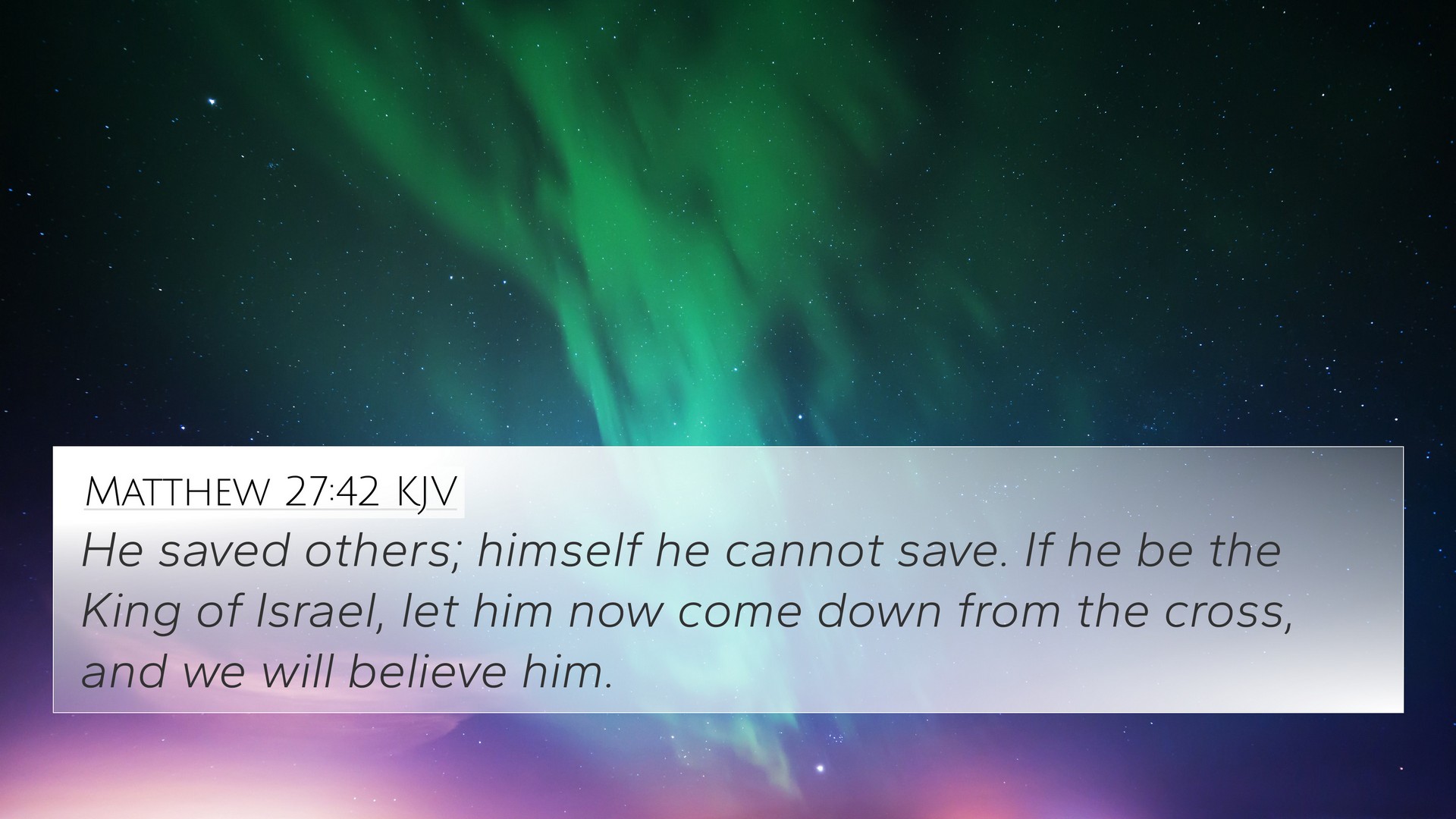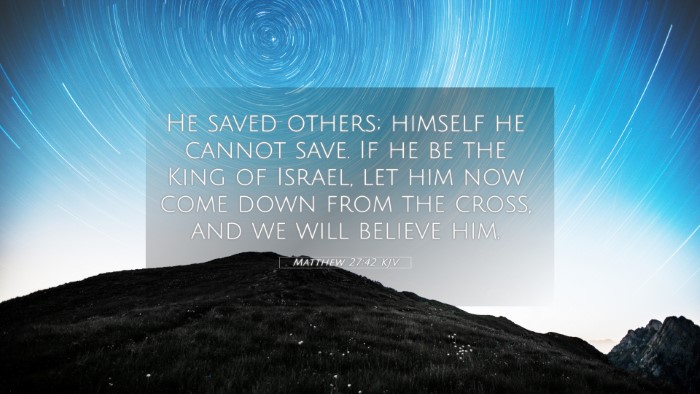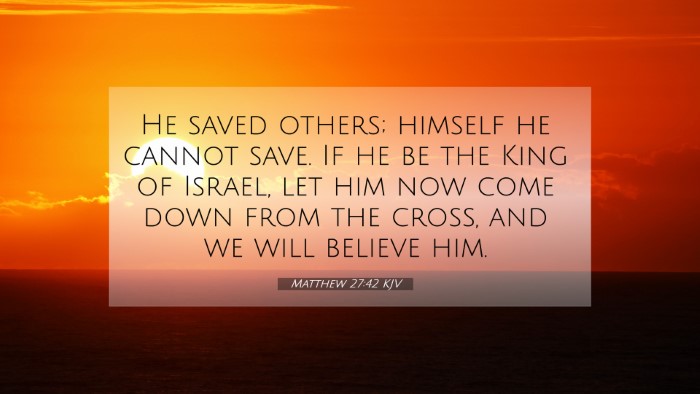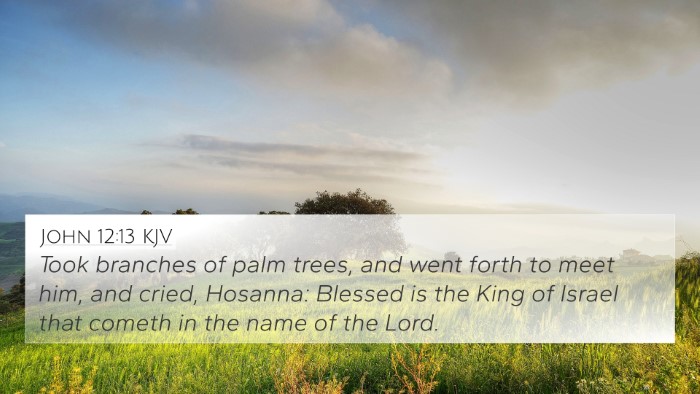Understanding Matthew 27:42
Bible Verse: Matthew 27:42 - "He saved others; himself he cannot save. If he be the King of Israel, let him now come down from the cross, and we will believe him."
Overview
This verse captures the mocking words of the chief priests and religious leaders as Jesus hangs on the cross. Their taunts reflect not only a challenge to His authority and identity as the Messiah but also highlight the profound irony and tragedy of the crucifixion.
Commentary Insights
The combined insights from notable public domain commentaries provide a layered understanding of this text.
-
Matthew Henry:
Henry suggests that the leaders of the Jews used sarcasm, expressing doubts about Jesus' true identity. They challenge Jesus to prove His power by coming down from the cross, indicative of their ignorance of the true nature of His mission, which involved sacrifice rather than self-preservation.
-
Albert Barnes:
Barnes highlights the contradiction in their challenge, indicating that coming down from the cross would not be an act of delivering Himself but rather a denial of His role as Savior. This reflects a misunderstanding of the necessity of His sacrificial death for the salvation of humanity.
-
Adam Clarke:
Clarke emphasizes that the religious leaders' words were not merely spoken in jest; they reveal the deep-seated rejection of Jesus as the Messiah. Their failure to recognize Jesus as the one who came to save was indicative of the larger context of disbelief among the people.
Thematic Connections
This verse invites readers to explore various themes within Scripture, including the role of suffering in Jesus' mission, the nature of faith, and the fulfillment of prophetic declarations regarding the Messiah.
Bible Verse Cross References
- Isaiah 53:3-5: Prophesies the suffering of the Messiah.
- Psalm 22:7-8: Prefigures the mockery Jesus would face.
- John 12:32-33: Jesus foretells His crucifixion and exaltation.
- Luke 23:35: Describes the mocking of Jesus during His crucifixion.
- Philippians 2:8: Discusses the humility of Jesus, culminating in His death on the cross.
- Hebrews 12:2: Encourages believers to look unto Jesus who endured the cross.
- 1 Corinthians 1:18: Highlights the paradox of the cross as foolishness to those who are perishing.
Connecting Biblical Texts
Within the broader narrative of the Gospels, this moment is pivotal as it intertwines with Old Testament prophecies and the New Testament understanding of Christ's redemptive purpose. The mocking in Matthew 27:42 serves as a critical juncture that brings to light the connections between the suffering servant in Isaiah and the sacrificial Lamb described in the New Testament.
Cross-Referencing Biblical Texts
Readers looking to explore connections between Bible verses can utilize various tools such as a Bible concordance or a Bible cross-reference guide. Engaging in cross-reference Bible study allows for a deeper understanding of how Jesus' suffering is linked to the fulfillment of his mission as outlined in the entirety of Scripture.
Conclusion
Matthew 27:42 serves as a profound reminder of the mockery faced by Jesus and highlights the misunderstanding of His purpose. By examining this verse through the lens of various commentaries and cross-referencing with other biblical texts, believers can gain a more comprehensive understanding of the significance of Christ's crucifixion and the fulfillment of prophecy. This verse encapsulates the ongoing theme of faith, rejection, and divine purpose, urging readers to reflect on the deeper meanings contained within the crucifixion narrative.










